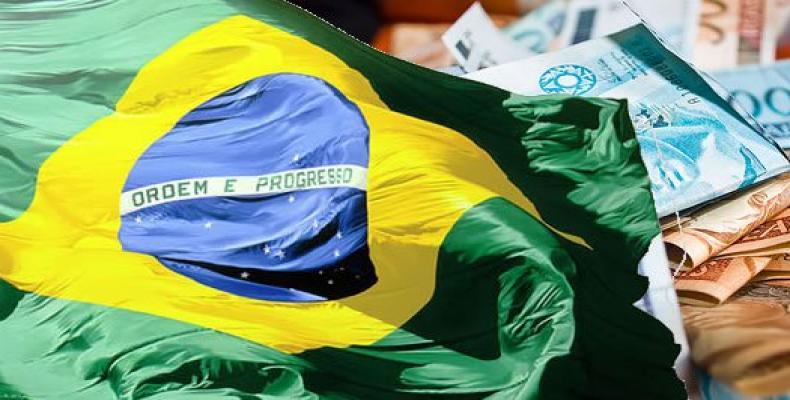Brasilia, August 13 (RHC)-- Brazil's economy decreased in 0.13 percent in the second quarter of the year compared to the first one, a result that if confirmed, could bring the South American country into recession, the central bank announced Monday.
The Brazilian financial institution indicated that the Index of economic activity, the principal indicator of gross domestic product (GDP), diminished after it had already dropped during the first quarter of 2019.
Brazil’s GDP declined by 0,2 percent in the first quarter and projections for its expansion remain under one percent, according to the central bank, the government, and the International Monetary Fund. The official figures for the second quarter are expected to be released at the end of August.
Although the central bank’s economic activity index rose 0.30 percent from May to June, this has not been sufficient to stop the slump. It was the first time this year that the index had grown two months in a row, suggesting hopes for a recovery, still, the indicators remain at unfavorable levels.
The services sector, for instance, fell by 0.6 percent in the second quarter, while industrial production fell by 0.7 percent and commercial sales by 0.3 percent, and according to official estimations, nothing indicates that things will improve in 2020.
A recession usually occurs when two successive quarters show negative economic growth. If the index is corroborated by official GDP data this month, Latin America’s largest economy will have fallen into recession for the first time since 2015-2016.
The country’s economy has been marked since the beginning of the year by high unemployment, weak industrial production, delayed fiscal reforms and low investment. “For now we keep our full 2019 estimate at 0.5 percent, with a slight upward bias,” said Mauricio Oreng, senior strategist at Rabobank in Sao Paulo, adding that “we are looking for a slight pickup in the second half of the year ... but what we can say for sure is that the economy remains anemic and sluggish.”
This announcement puts mounting pressure on the unpopular, far-right president, Jair Bolsonaro, the former army captain who took office on January 1st and whose approval rate is the worst since democracy returned in the Latin American nation.


